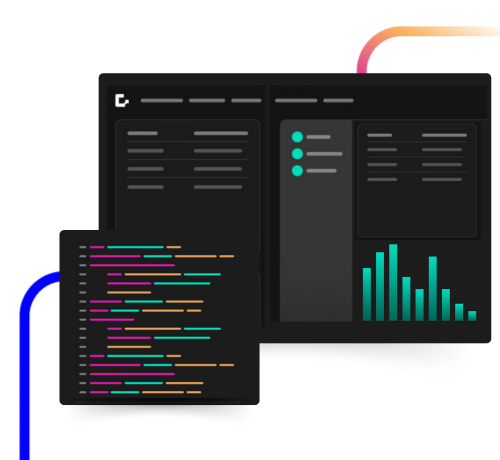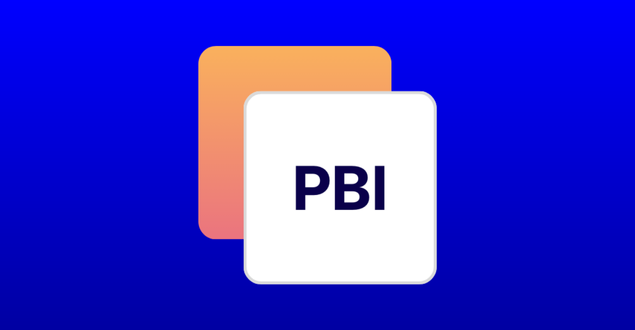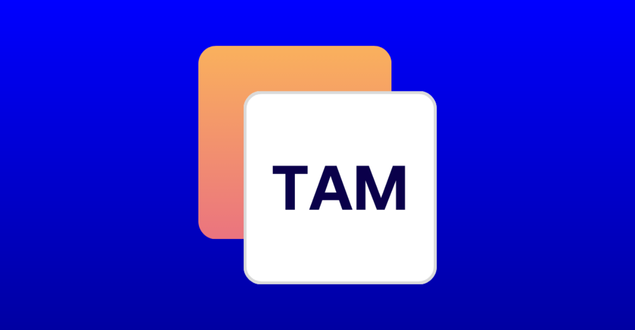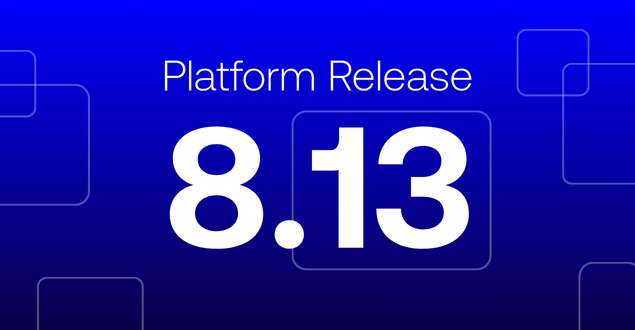Beyond low-code: why complex financial markets use cases require a new, specialized framework software development

Table of Contents
Striving for success in capital markets is extremely complex due to a high-velocity and severely regulated environment. To thrive, your team needs to be adaptable, highly specialized and competitive. But have you considered that these same attributes should apply to your software?
In this article, we’ll explore how financial firms can overcome challenges and risks associated with software development in capital markets environments.
The rise of generalist low-code and the citizen developer
The use of generalist low-code application platforms (LCAPs) has increased in recent years. This is partly due to the rise in remote work but also a result of shortages in technology staff, backlogs of projects and rising technology costs. The idea behind these low-code solutions is accelerating software development through simple, visual-driven, drag-and-drop coding.
It has also disseminated the concept of the citizen developer. Essentially, LCAPs enable anyone with access to the platform to create applications, regardless of their level of development expertise. Meaning that in theory, you would no longer need to rely on technologists to build specific software. In fact, we’ve seen low code success in other industries like Law & HR.
The false hope of generalist low-code
However, a non-technical employee using a generalist platform in the financial markets industry is unlikely to manage the complexities of applications required for success. This is because a typical application environment involves numerous functional, business-specific and technical elements, making it complex to navigate. These can include data connectivity and reconciliation, bespoke workflow, monitoring and controls, high-speed calculations and auditability.
While generalist low-code solutions may touch on aspects of these processes, the reality is that you need more sophisticated and purpose-built software to meet the end-to-end needs of financial market business processes. For example, a post-trade application for debt markets requires specific features, such as data adaptors, trade capture, reconciliation and clearing house connectivity. The application must also connect with similarly complex front and back-end systems. This means that a generalist one-size-fits-all low-code solution is insufficient.
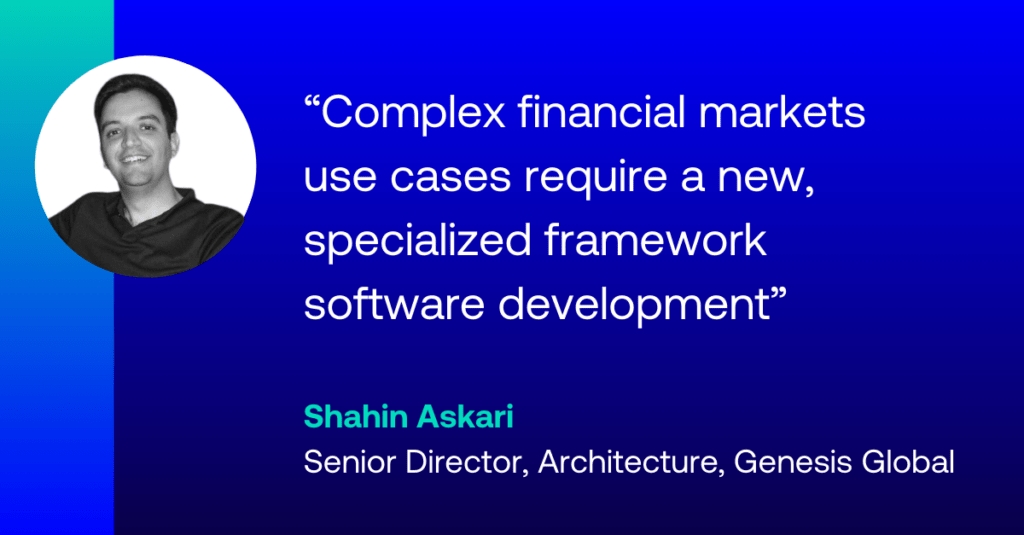
Capital markets: a different grade of software requirements
Like the requirements for post-trade operations, the same level of specificity is required for processes throughout capital markets functions and asset classes. This highlights the need for a specialized platform to meet software development demands in capital markets domains.
For developers, the technological foundation of a platform must deliver the highest levels of performance, security and resilience. For business use, it must deliver the controls, workflow and visualization. It must also be compatible with data sources, trade-related systems and market infrastructure.
Key capabilities for any software development platform serving capital markets should include:
- Rich, permissioned user workflows
- High-throughput data and transaction processing
- Enterprise security, audit and governance
- Interactive visualization and analytics
- Low-latency data integrations
- Scalability, performance and availability
Most cross-industry LCAP or RAD platforms can’t tick all these boxes. They are designed for the most common, generic challenges rather than the specialist financial environment.
But for firms to innovate, the platform must radically speed up the delivery of enterprise-grade applications.
The unique solution for a unique industry
So, for financial markets, specialized platform capability is essential for success. Fortunately, the Genesis Application Platform is exclusively built for financial markets. It is a multi-asset class solution that meets industry regulations and operates at the speed of the market. For instance, for Neptune, Genesis processes hundreds of thousands of fixed-income market messages per second.
We also make integrating new applications with any in-cumbent, bespoke or vendor technologies straightforward. Genesis is built to connect market data sources, clearinghouses, asset servicing platforms, trade repositories and other capital markets’ infrastructure. Across equities, fixed income and derivatives, Genesis is engineered to handle requirements throughout the trade life cycle.
Beyond low code: the key to innovating software development in capital markets
However, for financial institutions to innovate, the platform must radically speed up the delivery of enterprise-grade applications. Our approach goes beyond low code to redefine software development in the financial sector. Genesis is the first platform to augment low code with prebuilt components and AI to give developers the specialized, high-performance tools they need to accelerate coding, testing and deployment.
Here’s how each feature of our platform works:
A hybrid low-code core that:
- Features a domain-specific low-code language for financial markets, simplifying and accelerating development for developers of all skill levels.
- Covers both front and back-end development, eliminating the need for developers to have specialty skills to build full-stack applications.
- Allows developers to use our low-code toolset in their preferred IDE, combining the efficiency of low-code with the flexibility of pro-code when needed.
Specialized, prebuilt components that:
- Are curated and routinely updated for the specific needs of software development in financial markets
- Accelerate the assembling of robust application foundations by providing prebuilt modules.
- Eliminate the need to build common functionality from scratch.
- Focuses on financial market specialists’ needs, continuously expanding its component library with widely used functions like FIX and SWIFT messaging adaptors, Bloomberg Eiokon and Symphony integration and trade matching, market data handling and user management.
AI Tools to:
- Combine with low code to accelerate our high-performance coding engine.
- Help build developer training and facilitate code automation (co-pilots)
- Build components that bring new functionality to the platform to help software developers create new applications faster.
In financial markets where technology teams are under pressure to keep pace with fast-evolving markets, comply with increased regulation, and further digitalize their firms’ operations and processes, we’re here to help. With developers in short supply, success hinges on giving technologists the tools they need to build specialist software much faster. Specialty software development solutions, like Genesis, are needed to handle the complexity and performance requirements of the financial markets. The combination of low-code development acceleration, access to tailored software components and financial markets-ready AI tools is uniquely suited to helping technologists execute their organization’s digitalization roadmap. To learn more about how the Genesis Application Platform could fit your specialist needs, request a demo with one of our experts.
Start building finance-grade
applications 10x faster
Explore the Genesis Application Platform in action with a 60-day free trial* to get your first application built and in-market faster than ever before.
